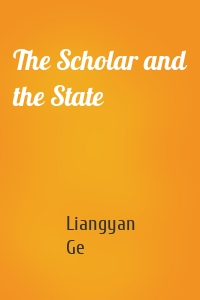Liangyan Ge
1 кн.
The Scholar and the State
In imperial China, intellectuals devoted years of their lives to passing rigorous examinations in order to obtain a civil service position in the state bureaucracy. This traditional employment of the literati class conferred social power and moral legitimacy, but changing social and political circumstances in the Ming (1368–1644) and Qing (1644–1911) periods forced many to seek alternative careers. Politically engaged but excluded from their traditional bureaucratic roles, creative writers...
| Автор | Liangyan Ge |


